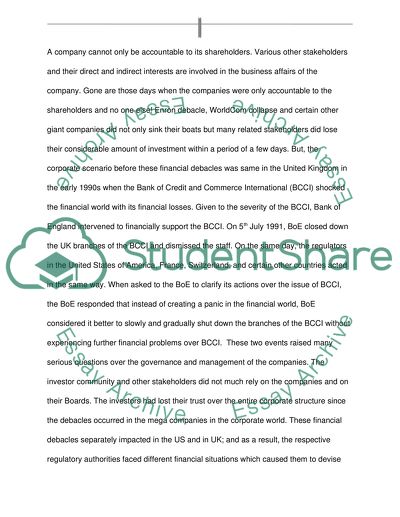Cite this document
(“The UK and USA Corporate Governance frameworks are predicated on Essay - 2”, n.d.)
Retrieved from https://studentshare.org/environmental-studies/1414629-the-uk-and-usa-corporate-governance-frameworks-are
Retrieved from https://studentshare.org/environmental-studies/1414629-the-uk-and-usa-corporate-governance-frameworks-are
(The UK and USA Corporate Governance Frameworks Are Predicated on Essay - 2)
https://studentshare.org/environmental-studies/1414629-the-uk-and-usa-corporate-governance-frameworks-are.
https://studentshare.org/environmental-studies/1414629-the-uk-and-usa-corporate-governance-frameworks-are.
“The UK and USA Corporate Governance Frameworks Are Predicated on Essay - 2”, n.d. https://studentshare.org/environmental-studies/1414629-the-uk-and-usa-corporate-governance-frameworks-are.


